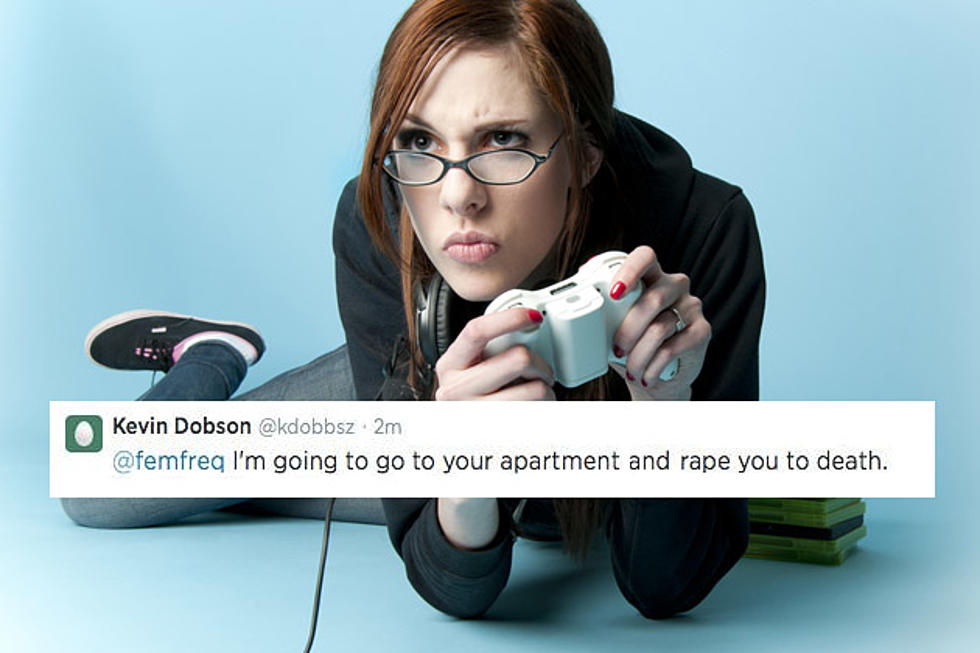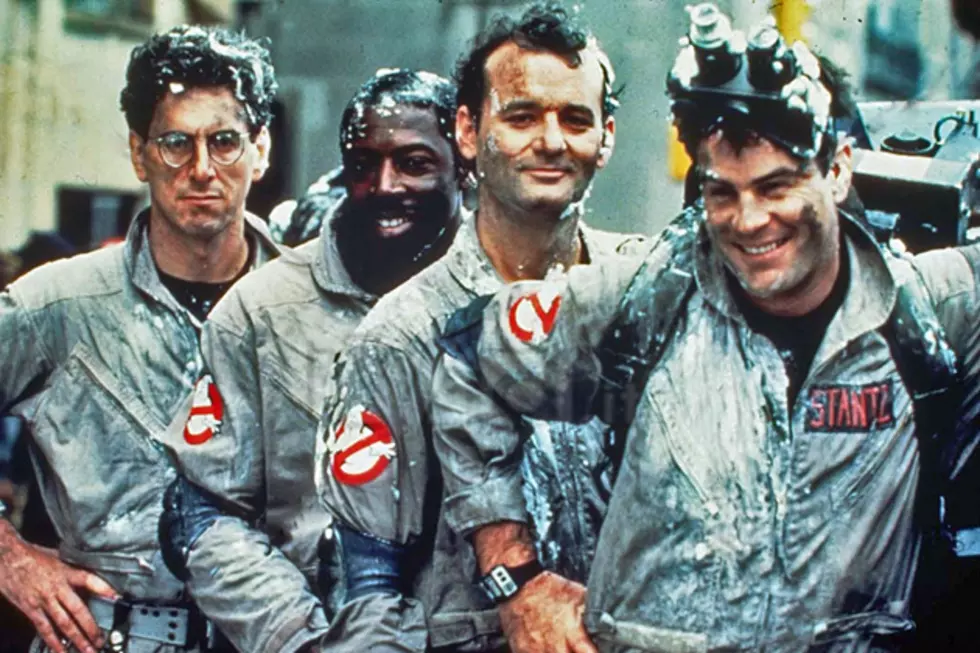
Reel Women: ‘Lola Versus’ the Film Critics
What do you do when your female-centric indie film tanks at the box office? Blame "older male critics," of course, and the filmmakers of 'Lola Versus' did just that. In this week's Reel Women we take a look at how this perceived misogyny is just as dangerous as the real thing.
Sexism is still very prevalent in this country -- nay, this world -- as women still earn less than men in nearly all occupations, the only survival tips we're told little girls need are how to apply make-up and deal with being famous (ha!), and magazines continue to make us all feel like woefully inept shrews on the verge of spinsterhood (see: every issue of Cosmopolitan, ever).
But is it sexism when your film about a messy-headed woman gets a tepid reception from critics and fails at the box office? In the case of 'Lola Versus,' that's what the filmmakers would like us to believe. They issued a press release this week, which critic Eric Snider published on Twitter, that read:
Our new movie with Fox Searchlight, 'Lola Versus,' just opened in theaters in NY and LA. The male critics are attacking the film and our box office really struggled last night. We think this has a lot to do with it being a female driven comedy about a single woman, and the older male critics don't like messy unapologetic stories with women at the center. There was a similar backlash against HBO's 'Girls' at first from men, but we don't have the luxury of a full TV season to change their minds.
First off, their film had only opened in New York and LA, and while it only earned $34,000 at four theaters, it's still a little early to tell how well it will fare once it receives a wider release. Granted, those early numbers don't indicate a future box office smash or anything, but judging by the film's indie status and the history of indie films at the box office, I don't think the lack of success for 'Lola Versus' is necessarily indicative of sexism.
Sure, smaller films rely on early word of mouth from critics and audiences based on those openings in major cities, but is it fair to say that it's the "older male critics" who are destroying any chance this film had for success?
Our own Matt Singer broke down the statistics:
At Rotten Tomatoes, 'Lola Versus' currently holds a 43% approval rating, with 13 positive reviews against 17 negative reviews. 5 of the positive reviews are by women, 7 are by men, and 1 is by a couple writing together; meanwhile, 3 of the negative reviews are written by women, and 14 are by men. If we look within each gender, we see 63% of female critics liked 'Lola Versus,' compared with just 50% 33% of male critics.
Singer also notes, after further investigating the actual reviews, that the numbers measure out to a more reasonable 50% of female critics, but that still puts the number of negative male reviews higher.
But film criticism is a distinctly male dominated field. And while there are certainly plenty of bright female film critics (Alison Wilmore, Kim Voynar, Amy Nicholson, Katey Rich, Jen Yamato, Kate Erbland, Jenni Miller -- just to name a few), the men still outnumber us greatly. It would, then, be fair to say that the reason why more male critics disliked 'Lola Versus' is simply that there are, well, more of them to dislike it.
Full disclaimer: I have yet to see the film, but the themes are well within the realm of something I'd typically enjoy -- a woman in her late 20s is dumped and, with the help of her friends, goes on a little soul-searching before she turns 30. Typically I enjoy a good flawed protagonist; there's something so much more relatable about a character with clearly defined flaws trying to sort their life out because people who are always good and have horrible things happen to them are just so boring. We're all messy, but we like to pretend we can relate better to a character with messy hair versus one with a messy head. It's natural, but it's not honest.
That said, this accusation of misogyny in film criticism isn't -- as the filmmakers might believe -- solving the sexism problem; in fact, it's a part of that very problem. Sexism isn't always blatant -- it often resides in our subconscious, pouring itself out in our actions. Accusations of sexism are harder to prove because no one in their right mind is going to admit they're a big ol' sexist jerk. Some people don't even realize they're sexist until they're called out on it, and even then they can always claim, "But I have friends who are women! I have a wife! I have a daughter! I love my mother!" And clearly we should excuse them because, like that guy at the party who says he's not racist because he has that one black friend, they must not be sexist if they have at least one woman whom they care about.
However, this particular claim of sexism is unfounded and, while presented with good intentions, wrong. When you say that men don't like your movie because it's about a flawed female protagonist, you're saying that women don't like certain movies because they're about a superhero with a big gun or a guy with a penis problem (pick one, there are many). You are enabling further gender bias. Is there gender bias in film criticism? None that is readily visible, though according to some readers of Amy Nicholson's 'Avengers' review, she disliked the film because she's a woman, not because she's a film critic with her own set of standards who happens to possess the ability to articulate her opinions, or because she's a human being with opinions like anyone else.
I myself have been victim to similar internet attacks. In my recent piece on 'Fifty Shades of Grey,' I was accused by many readers of needing to "get laid." Some of those readers were women. What does this have to do with 'Lola Versus'? The answer is this: gender bias doesn't exist within one sex against the other; gender bias exists in either sex against either sex. A woman can be biased against other women just as easily as a man can be biased against women, or a woman against men. It's not fair to say that the issues plaguing your film's future at the box office are a result of biased male critics, when plenty of female critics watched and reviewed and similarly disliked your film. As Matt Singer points out, the film had plenty of competition at the box office, both big and small, and films targeted at the same demographic ('Moonrise Kingdom' and 'Safety Not Guaranteed') proved to be liked more by both critics and audiences.
Crying misogyny where there is none is equally as dangerous as misogyny itself, in that it works to widen the gender divide, further defining and encouraging an unfortunate "us versus them" line of thinking. The filmmakers are clearly trying to manipulate the sympathies of a politically correct-minded press and public with this ill-conceived claim of social injustice. This isn't 'Lola Versus' legitimate sexism -- it's 'Lola Versus' righteous indignation.
More From ScreenCrush









